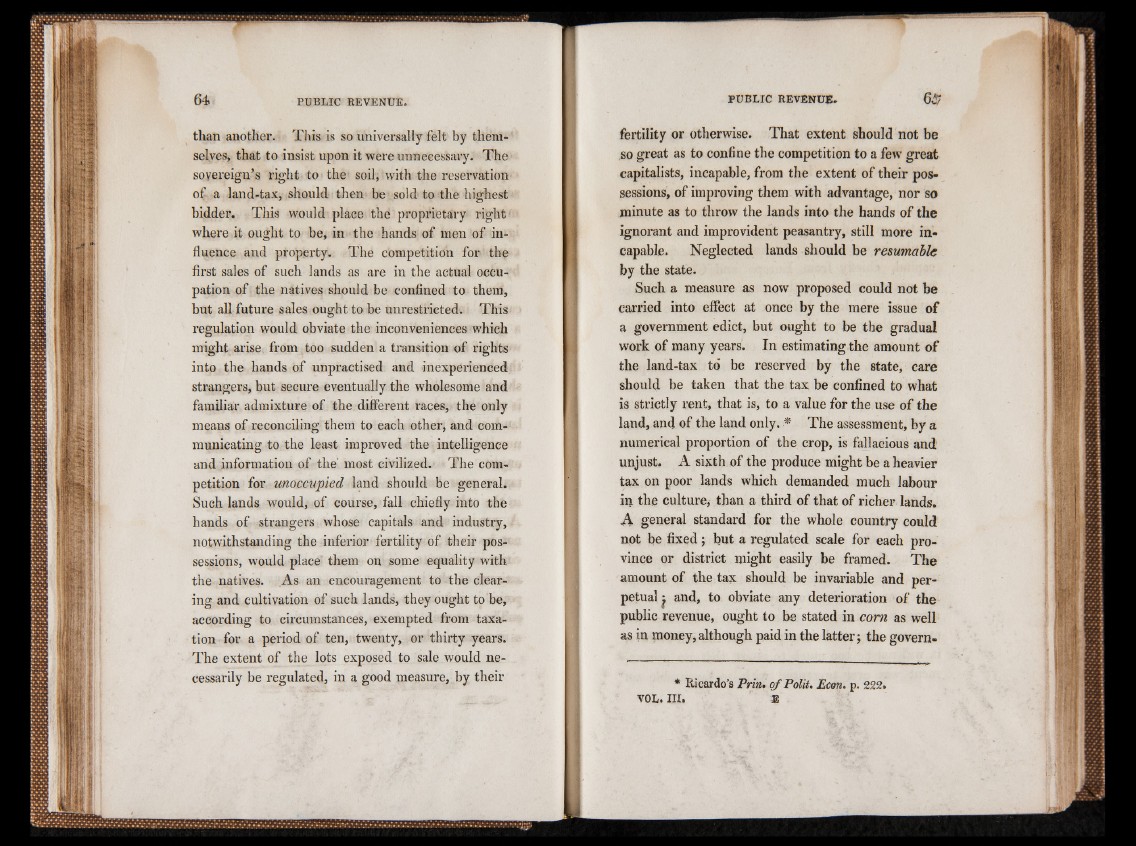
than another. This is so universally felt by themselves,
that to insist upon it were unnecessary. The
sovereign’s right to the soil, with the reservation
of a land-tax, should then be sold to the highest
bidder. This would place the proprietary right
where it ought to be, in the hands of men of influence
and property. The competition for the
first sales of such lands as are in the actual occupation
of the natives should be confined to them,
but all future sales ought to be unrestricted. This
regulation would obviate the inconveniences which
might arise from too sudden a transition of rights
into the hands of unpractised and inexperienced
strangers, but secure eventually the wholesome and
familiar admixture of the different races, the only
means of reconciling them to each other, and communicating
to the least improved the intelligence
and information of the' most civilized. The competition
for unoccupied land should be general.
Such lands would, of course, fall chiefly into the
hands of strangers whose capitals and industry,
notwithstanding the inferior fertility of their possessions,
would place them on some equality with
the natives. As an encouragement to the clearing
and cultivation of such lands, they ought to be,
according to circumstances, exempted from taxation
for a period of ten, twenty, or thirty years.
The extent of the lots exposed to sale would necessarily
be regulated, in a good measure, by their
fertility or otherwise. That extent should not be
so great as to confine the competition to a few great
capitalists, incapable, from the extent of their possessions,
of improving them with advantage, nor so
minute as to throw the lands into the hands of the
ignorant and improvident peasantry, still more incapable.
Neglected lands should be resumable
by the state.
Such a measure as now proposed could not be
carried into effect at once by the mere issue of
a government edict, but ought to be the gradual
work of many years. In estimating the amount of
the land-tax to be reserved by the state, care
should be taken that the tax be confined to what
is strictly rent, that is, to a value for the use of the
land, and of the land only. * The assessment, by a
numerical proportion of the crop, is fallacious and
unjust, A sixth of the produce might be a heavier
tax on poor lands which demanded much labour
in the culture* than a third of that of richer lands.
A general standard for the whole country could
not be fixed; but a regulated scale for each province
or district might easily be framed. The
amount of the tax should be invariable and perpetual
: and, to obviate any deterioration of the
public revenue, ought to be stated in corn as well
as in money, although paid in the latter j the govern*
Ricardo’s Prin* of Polit. Econ. p. 222.
VOL. III. £